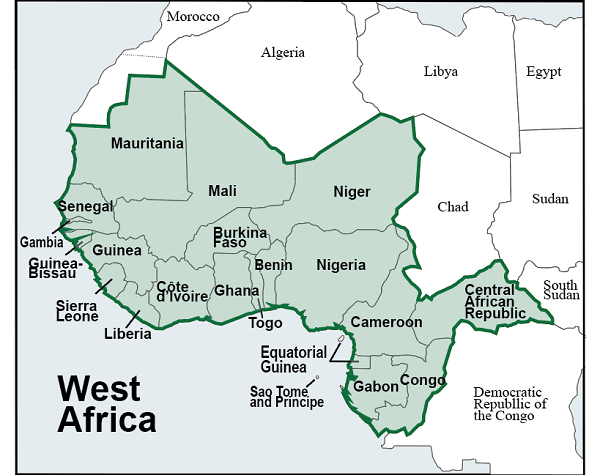Nigeria’s food is the cheapest in West Africa, governors declare
Nigerian governors have said that the country’s food is the cheapest in West Africa and that neighbouring countries are using it to trade and earn foreign exchange.
The governors made this statement in Abuja on Tuesday, when they visited the minister of Agriculture and Food Security, Kyari.
They were led by the chairman of the Nigerian Governor’s Forum (NGF) and Kwara State Governor, AbdulRahman Abdulrazaq, who was accompanied by Agbu Kefas (Taraba), Ahmed Ododo (Kogi), and Lucky Aiyedatiwa (Ondo).
The governors said that Nigeria needed to ramp up production and increase yield per hectare to feed West Africa and export food.
They also expressed regret that Nigeria could not achieve much with the Central Bank of Nigeria (CBN) Anchor Borrowers Programme, which they described as challenging.
They said that food security was a one stop shop and that they needed to concentrate on dry season farming.
Abdulrazaq said: “We have noted that food in Nigeria is the cheapest in West Africa and our neighbours are using our food to trade. They are taking our soya beans and others to get foreign exchange…
“We need to ramp up production and increase yield so we can feed West Africa, ourselves and export food…
“We could not achieve much with CBN Anchor Borrowers programme it was challenging. Food security is a one stop shop and we need to concentrate on what we are on for dry season farming”.
The minister of Agriculture and Food Security, Kyari, told the governors that the aim of his ministry was to increase production all-year round with the objective of driving down food inflation, creating jobs, reducing poverty, engendering growth and promoting inclusivity.
He said he had sent out Expression of Interests to governors and the Federal Capital Territory (FCT), ahead of the second phase of dry season food production programme under the National Agricultural Growth Scheme and Agro-Pocket (NASG-AP).
He said: “We are putting behind us challenges encountered during the First Phase with Wheat in 15 states. After evaluation of some glitches that characterised that phase, and with stakeholders’ proposals, there will be additional guidelines for the Second Phase commencing soon…”
“There is no question that if we get things right now, and without an iota of doubt with all hands on the plough, future programmes and projects will enable us more seamlessly achieve all-year-round agricultural production with beneficial consequences for Economic Empowerment, Inclusivity and ultimately wider opportunities for Value Addition, Food and Nutrition Security as well as Industrialization.
“The phase we are about to get into is particularly crucial because, unlike the phase one for Wheat Production, which involved only 15 States, the second phase will cover the entire country. We will therefore, like you to use the instrumentality of your offices as Governors to ensure the readiness of your respective States for optimal participation in this second phase for the cultivation of rice, maize, and cassava”.



